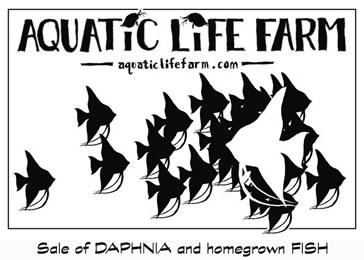Acpape0
Members
Today pet in elkridge has this ones twin for $25 as of Saturday
Sent from my iPhone using MonsterAquariaNetwork app
Sent from my iPhone using MonsterAquariaNetwork app
Today pet in elkridge has this ones twin for $25 as of Saturday
Sent from my iPhone using MonsterAquariaNetwork app
+1 to pretty much all of the above.The hybrid debate has been a hot topic for a long time. Although I don't agree with the "all fish are hybrids if you go back far enough" theory, I'm not against anyone keeping fish they enjoy. Just be straight forward with what you have should you pass it along to another hobbyist. I like to keep fish that are close to their natural existence as I can (and I have a number of wild caught specimens from reliable sources). I like to breed the fish and keep them within known provenance. But that's just me. Do I think that OB peacocks and Thai silk flowerhorns and fancy discus and fancy angels and fancy livebearers are stunningly beautiful? Absolutely yes.
Keep what you like. Keep it well and keep it healthy.

There is huge difference between two types of hybrids: Line bred hybrids with a goal to develop certain traits, and accidental hybrids that happened randomly in someone tanks.
I have no problem with the first type. Even anti hybrid advocates such as ACA accept fancy hybrid peacocks as exception. It is the second type that is problematic because there is nothing to gain from accidental hybridization.
Line bred hybrids took paintaking efforts and years to develop specific traits. Some of the best looking peacocks, discus and Flowerhown are line bred hybrids. Buying pure speces or line bred hybrids is like buying named brands--You know exactly what the adults will turn out.
Buying accidental hybrids is buying into unknown. I have no interest in raising random unknown. Accidental hybrids used to be a huge problem in the hobby as hobbyists traded in their random hybrids with LFSs and with one other. Not anymore as hobbyists and LFSs are smart enough today not to accept random hybrids to pollute the gene pool.
There is nothing morally wrong to keep accidental hybrids yourself, but it is morrally wrong to sell and mislabel hybrids as pure species.
It was saidAccidental hybrids used to be a huge problem in the hobby as hobbyists traded in their random hybrids with LFSs and with one other. Not anymore as hobbyists and LFSs are smart enough today not to accept random hybrids to pollute the gene pool.
I disagree there is not a single lfs or lps that does not or has not sell/ sold hybrids of some sort
Sent from my iPhone using MonsterAquariaNetwork app
+1
Just because lfs don't always label their fish correctly doesn't mean it's right.
No one is saying that lfs don't sell hybrids. They do, and that Is why I buy my fish that I wish to breed from reputable sources.


